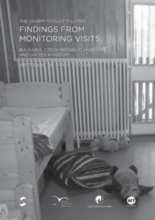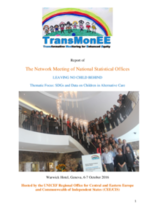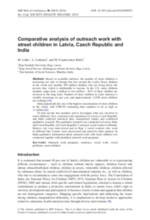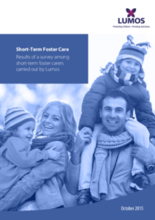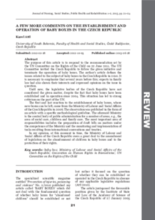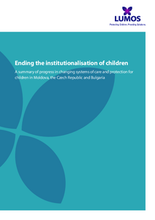Displaying 21 - 30 of 35
Over the past five years, the number of children in the Czech Republic returned from institutional care to their biological parents has increased by one-third.
This report is one of several outputs arising from the project “Identifying and Preventing Abuse of Children with Mental Disabilities in Institutions.” The report presents findings from the monitoring of European institutions where children with intellectual disabilities and children with psychosocial disabilities live on a permanent or semi-permanent basis, through the development of tools and guidance aligned with international human rights law and policy.
Czech bishop calls government's preference for foster care "completely unrealistic".
This abstract relays the findings of a survey on informal carers' views and opinions under the current conditions of social support in the Czech Republic.
This document summarizes the content of the 6-7 October 2016 Network Meeting of National Statistical Offices. The event comprised of a number of presentations on topics related to the SDGs and data on children in alternative care.
Supported by the non-profit organisation Lumos, British Family Court Judge Nick Crichton, a pioneer of the Drug and Alcohol Courts in the UK, is advising his contemporaries in the Czech Republic as part of the overall reform process in the country to end the institutionalization of children. Nick Crichton has 30 years of experience of sitting as a District Judge and has worked with children and families. He presented at the Czech Judicial Academy, a training and education academy for Czech judges in Kromeriz, Czech Republic on 20-21 January.
This study notes that there are currently 700 million people below the poverty line. According to this study, around 40 percent are considered vulnerable children. It further states that according to UNICEF India has approximately 11 million children living on the streets. It is one of the highest concentration of the street children in the world. To investigate the status of street children, this study investigated outreach work in Latvia, Czech Republic and India.
This study from Lumos provides an analysis of a survey administered to temporary foster carers in June 2015 in seven regions of the Czech Republic to address negative perceptions of foster carers and to determine whether public criticisms were founded.
In this article, the author offers a response to the recommendations made to the government of the Czech Republic by the UN Committee on the Rights of the Child (UNCRC).
This report presents a summary of progress in Lumos’ first three country demonstration programmes – the Republic of Moldova, the Czech Republic and Bulgaria.

